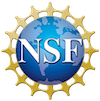|
By Kevin Cox Jr. From July 30th - August 4th, 2023, 120+ attendees gathered in Ventura, California for the first Gordon Research Conference (GRC) in Single-Cell Approaches in Plant Biology. This conference was organized by committee members of the Plant Cell Atlas, who sought to bring together a community of individuals that are using technologies in plants to dissect the functions and interactions of specialized cell types and their capacity to respond to environmental changes, interact with other organisms, grow, and reproduce. In this blog post, I recount interviews of five individuals that attended the conference and summarize their responses to some of the questions I asked them. Motivation for attending the conference All the interviewees mentioned that there was a lack of conferences focused on single-cell approaches in plants. Each of them was working on projects related to this area and were excited to finally have a conference that allowed them to discuss common obstacles and discover different methods that would be applicable to their projects. “I wanted to attend the GRC to share and get feedback and advice on my single-cell project. I was also excited to go to a smaller conference!” – Lily O’Connor, Graduate Student, Washington University in St. Louis/Donald Danforth Plant Science Center Favorite thing about the conference While there was no question that the science being discussed was outstanding, a common theme that was brought up as an answer to this question was the interactions with other people. GRCs are a unique setting where they bring together a small community, in a small, isolated space to not only discuss science directly related to their projects, but to also build networks and potential collaborations with other people. In addition, the daily afternoon break, the nightly social at the end of each day, and the frequent coffee breaks in between sessions provided some fun interactions. “For me, it was meeting other people. I’m new to this area of science and meeting a lot of people that I have previously known online has been really good.” – Shuyao Kong, Graduate Student, Cornell University Speaker selection The interviewees were impressed by the speaker selections, particularly with the number of early career researchers presenting. The diversity of topics covered in this conference was also a strength, as it covered a huge range of biology from single-cell profiling to whole plant phenotyping. Moreover, the organization of the talks was well-curated and thought out that allowed the attendees to see how these different areas of biology can ultimately be applicable to their research. “The speaker selection covered a wide range of biology – I liked that personally as it helps you think broadly about the types of techniques you can incorporate in your projects. I can’t pick a favorite session because there were too many good ones!” – Macy Vollbrecht, Graduate Student, Stanford University Visibility of the Plant Cell Atlas When I asked about whether they knew about the Plant Cell Atlas (PCA) before the GRC, the responses were mixed. Responses ranged from knowing everything about the PCA, to recognizing the name but unaware of what the PCA did, to never hearing about it at all. After the conference, all of them were very supportive of its mission, the activities it produces, and how it was composed of community members from diverse career stages and backgrounds. “A lot of the conversations I have had with other attendees mentioned that this conference has been a really good recruitment tool for people that might be interested in joining the Plant Cell Atlas committee. It’s also a good networking opportunity for those that are already apart of the PCA.” – Dr. Heather McFarlane, Assistant Professor, University of Toronto Looking ahead to the GRC in 2025 Overall, there was a strong consensus from the interviewees (and from other attendees I informally chatted with) that this was a very successful meeting. I personally can’t wait to return for the next PCA GRC in 2025 and seeing this community again. “Oh, absolutely and I would like to be a speaker at that conference! It seems like the perfect place to get feedback and disseminate information on single-cell projects in plant biology.” – Dr. Bryan Ramirez-Corona, Postdoctoral Associate, University of Washington Click on "Comments" below to leave a comment.
3 Comments
Thanks for a thoughtful and helpful summary of the meeting! Loved the quotes from early career scientists! The PCA is such a good example of how grassroots science networking can thrive when diversity and inclusion are at the heart of the culture. I hope we can figure out ways to make the GRC meetings more affordable for early career scientists in the future.
Reply
Leave a Reply. |
Archives
December 2023
Categories |
MICHIGAN STATE UNIVERSITY LAND ACKNOWLEDGEMENT
“The Plant Cell Atlas operates predominantly out of Michigan State University. We acknowledge that Michigan State University occupies the ancestral, traditional, and contemporary Lands of the Anishinaabeg – the Three Fires Confederacy of Ojibwe, Odawa, and Potawatomi peoples. We affirm Indigenous sovereignty and hold Michigan State University accountable to the needs of American Indian and Indigenous peoples.”
“The Plant Cell Atlas operates predominantly out of Michigan State University. We acknowledge that Michigan State University occupies the ancestral, traditional, and contemporary Lands of the Anishinaabeg – the Three Fires Confederacy of Ojibwe, Odawa, and Potawatomi peoples. We affirm Indigenous sovereignty and hold Michigan State University accountable to the needs of American Indian and Indigenous peoples.”

 RSS Feed
RSS Feed



